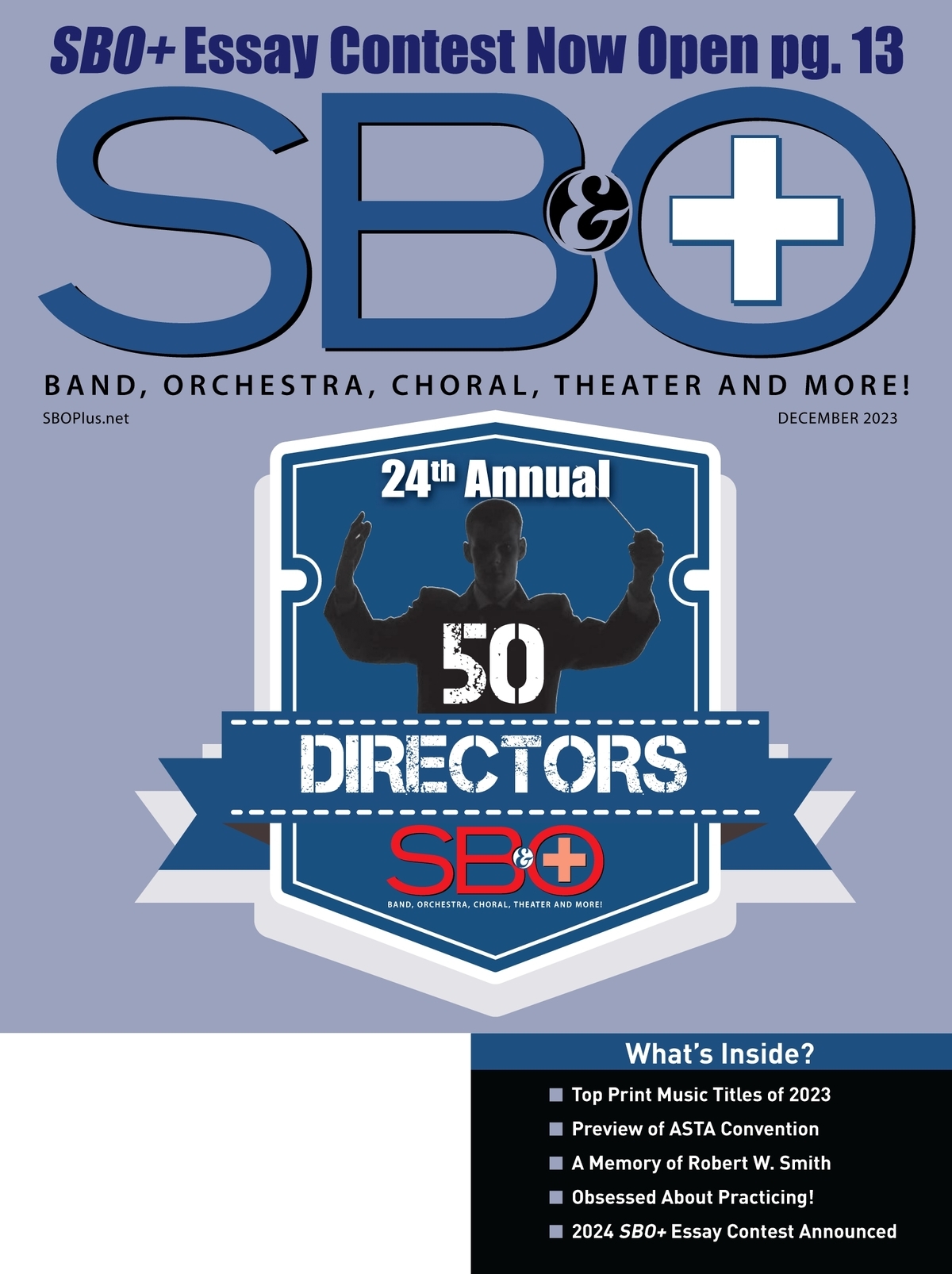EDUCATORS SUBSCRIBE FOR AS LOW AS $0.00! CLICK HERE!
Getting the Band Back Together
In April, 2000, School Band and Orchestra featured Barnstable (Mass.) High School music director Tony Stevens in his brand new music facility. Back then, as Stevens beamed with pride at his shiny new surroundings, one hardly would have believed that only a year later the district’s music program would be cut almost entirely, making the new music rooms and equipment obsolete in the not too distant future.
In May, 2001, local voters rejected a $6.7 million school budget override that would have kept intact several teaching positions and programs. As a result of the vote, the music program lost nine teachers, and instrumental education in grades three through eight was cut from the middle and elementary schools. Nearly 1,000 young music students had their education cut short by the vote. Only the music program at the high school — minus the after-school marching band program — remained. But, with no music students feeding into the high school, as Stevens points out, “It would have been a matter of three years and that would have been it. That would have been the end of an excellent, recognized music department.”
Stevens says “would have been” because that’s not what ended up happening. Faced with the extinction of music education in their town, supporters of the program rallied together and embarked on an unprecedented campaign to raise enough money to bring teachers back and reinstate the music programs in the younger grades. The campaign, which began almost immediately and ended in mid-October, yielded donations from businesses and individuals who did not want to see music education disappear from their community.
“They were just outraged that so many kids who were involved in something as good as instrumental music was just cut out. This is a real music town and the community had just risen up and said, ‘No, you’re not going to [take it away].’ “
The capital campaign, organized by a core group of three parents — Bill Erhard, Pat L’Heureux and C. L. Fornari — and John Jamison, the percussion instructor, raised enough money to re-hire four full-time music teachers and one half-time music teacher.
“They raised almost a quarter of a million dollars for the music program. That’s WOW with capital letters,” Stevens proclaims.
The fundraising efforts restored music education for students in grades five through eight. A single donation of $24,300 from KeySpan Energy brought the high school marching band activity back in September.
“I was devastated all summer that there was no marching band,” Stevens recalls. “I’ve had it since I was 13 years old. I remember standing in my living room talking to Bill Erhard and he said, ‘Guess what? We have money for marching band.’ I almost fainted dead on the floor.”
Despite losing four months of marching band practice, the students “dug in” and did the best they could with the little preparation time available. The band was able to perform its field show at football games and also performed in parades this season.
“We showed off the fact that we were still in existence and darn good at it. It was great,” Stevens says.
In addition to having music education back in his community, Stevens has also seen other positive results of what began as one of the most devastating experiences of his teaching career.
“What’s really good about it is the responses from the community saying, ‘Yes, of course this is worth it,’ and ‘How could that be cut? It’s so good.’ It gave us a good feeling that our community really appreciates what we do.”
Because of the support the community has shown for the music program, the program’s budget requests have been added to next year’s school budget requests — not as part of an override. These budget requests will require approval from the community, but Stevens is confident that the support is there. Being tied into such a large budget override proposal that included other school activities was the music program’s downfall last year, he believes.
“I think the town has really spoken that this is an important thing to them, that it’s important to have music in the school system,” Stevens notes.
For other music educators facing similar cuts to their music programs, Stevens has several words of advice.
“It’s no secret that when budgets are cut, instrumental music is the first to go. The sad part about it is that it doesn’t matter how good you are. Two years ago, we were voted one of the Best 100 Communities for Music Education in America. You go from that to a budget that doesn’t support you. It’s like, ‘Whoa! What happened here?’ That’s why I say it doesn’t matter how good you are or how many trophies you have in the band room or how many kids from your program have gotten into All-State. It’s all money.
“I think the best thing you can do is get your marching band out there to every parade that is out there. You have to make Joe Smith, who doesn’t know anything about the viola, aware that this is important to a whole bunch of kids to learn. Get yourself out there. Give free concerts to community groups, like the Rotary Club. You can’t be in a cocoon in your school. You have to get out there and perform. Make yourself very visible.”
UpFront appeared on pages 19 – 20 in the January issue of School Band and Orchestra.






